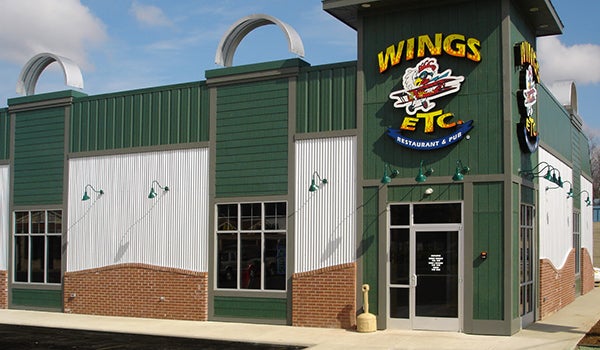Marijuana business approval reveals reasons why industrial space is preferred
Published 9:00 am Friday, October 25, 2019
NILES — Niles’ medical marijuana business is picking up momentum.
On Wednesday, growing and processing venture HLM had its request for a special land use permit approved by the Niles Planning Commission. If further licensure from the city and state are approved, it will operate on the industrial property of the former Simplicity Pattern Company building, 901 Wayne St.
At 11 a.m. today, Niles’ first medical marijuana business, The ReLeaf Center, will open on another industrial space, 1840 Terminal Road, in the Niles Industrial Park. Its facility includes a grow operation as well.
At past city meetings, people have pointed out that medical marijuana growers could operate on agricultural land instead of industrial land, which some entrepreneurs seek out. Doing so causes them to request a special land use permit.
The reasoning why became clear during a public hearing at Wednesday’s Niles Planning Commission meeting.
Per the city’s ordinance, marijuana cultivation must occur in a locked an enclosed space in industrially zoned land.
Agriculturally zoned property would likely relegate marijuana businesses to townships in the area, which have not allowed medical marijuana businesses to operate.
Niles resident Shelley Schreiner, who lives near the former Simplicity Pattern Company building, said that HLM could have chosen a site other than the former factory within a neighborhood.
“We put it into industry,” she said. “It is agricultural. It could be in a better place. It doesn’t have to be there, and I would like that addressed, as well, or acknowledged.”
Schreiner said that HLM would be along a route taken by children walking to school, and she feared that the business could produce smells and put up marijuana-related signage.
Planning commission chair Rodrigo Correa said the planning commission looked into HLM’s plan. He said it abided by all special land use permit rules, which include being distanced from schools, regulating smell and prohibiting signage displaying marijuana and paraphernalia.
Correa read out the standards that each entity requesting special land use must follow.
“We did look at the plan, and as Mr. Morley has mentioned, there will be no indication of that being a facility in which there is marijuana growth happening,” Correa said.
Tim Morley, whom Correa referred to, is the self-proclaimed “Employee Zero” of HLM, if it is approved. The Chicago resident, who plans to move to Niles, reassured Schreiner and the council that the special land use permit would be followed.
“We’re going to do everything we can to contain odors and smells,” he said. “We’re not going to put up any signage to indicate there’s any activity going on there at all. If there weren’t cars coming and going, like they would from any other business, you wouldn’t notice there was activity there, never mind cannabis activity.”
Owner Tim Trojahn, of St. Joseph, said industrial space, specifically the former Simplicity site, was chosen to ensure proper security and outside smell elimination, two points Schreiner touched on.
He said if marijuana for medicinal purposes was grown in agriculturally zoned land, smells would escape, and security would be jeopardized. He also said his product’s safety could be at risk because the plants would be more prone to pests and chemical infiltration.
“We won’t be a burden on emergency services, whether it’s firefighters or police, and we will be controlling our odor very well with carbon scrubbers going 24/7, 365 [days],” Trojahn said.
The owner also noted that Simplicity’s space offers high ceilings for proper plant growth and lots of power for his potential business’ electrical and heating needs.
Being in an industrial space in city limits also allows him to be closer to the community he hopes to impact, he said.
The same arguments were made by Denise Lynch, owner of Green Stem, LLC. It hopes to grow upwards of 6,000 plants in the Simplicity building as well.
“We’re just looking forward to making a difference in the city,” Trojahn said. “I know it got kind of hit hard, at least the Simplicity building, it got hit hard by the recession. We look forward to transforming that into something productive.”
Trojahn claimed that the 3,000 plants he could grow and process in a 37,000-square-foot space could create 50 to 70 jobs and generate $9 to $11 million at full scale.
He also said he would apply social justice principles to his business, meaning that non-white people would be given the opportunity to participate in an industry appearing to be led by white entrepreneurs.
HLM will have to receive city permit approval, state licensure approval and city licensure approval before building. Then, it must pass its first routine safety inspection before being cleared to open.






